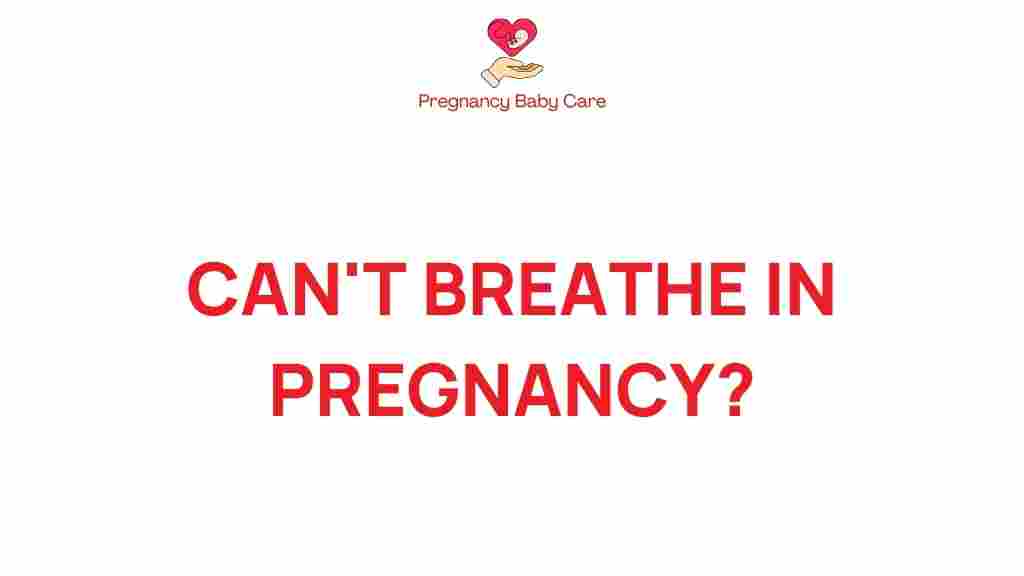Struggling to Breathe During Pregnancy? Understanding Pregnancy Breathlessness
Pregnancy is a beautiful journey filled with excitement, anticipation, and an array of symptoms that can sometimes be overwhelming. Among these symptoms, many expectant mothers experience pregnancy breathlessness. This can be alarming, especially for first-time moms, but understanding why it occurs and how to manage it is crucial for maintaining maternal health. In this comprehensive article, we will delve into the causes of breathing difficulties during pregnancy, offer essential wellness tips, and provide valuable pregnancy advice to ensure a smooth experience.
What Causes Pregnancy Breathlessness?
As your baby grows, your body undergoes numerous changes, some of which can lead to breathing difficulties. Here are the primary reasons you might experience pregnancy breathlessness:
- Hormonal Changes: During pregnancy, hormone levels, especially progesterone, increase significantly. This can lead to changes in your respiratory system, making you feel short of breath.
- Physical Changes: As your uterus expands, it pushes against your diaphragm, which can limit your lung capacity and make breathing feel more laborious.
- Increased Blood Volume: Your blood volume increases by almost 50% during pregnancy. This can cause your body to work harder to supply oxygen to both you and your baby.
- Anxiety and Stress: The emotional rollercoaster of pregnancy can also contribute to feelings of breathlessness. Anxiety can trigger hyperventilation, making it feel like you’re struggling to catch your breath.
When Should You Be Concerned?
While mild breathlessness is common during pregnancy, it’s essential to monitor the severity of your symptoms. Seek medical attention if you experience:
- Severe shortness of breath or difficulty breathing
- Persistent cough or wheezing
- Chest pain or tightness
- Signs of swelling in your legs or arms
- Feeling faint or lightheaded
These could be signs of a more serious condition, such as a blood clot or respiratory issue that requires immediate attention.
Managing Pregnancy Breathlessness
Here are some practical health tips and strategies to help you manage breathing difficulties during pregnancy:
1. Practice Deep Breathing Techniques
Deep breathing exercises can help improve your lung capacity and reduce feelings of anxiety. Here’s a simple technique to try:
- Find a comfortable seated position.
- Close your eyes and take a deep breath in through your nose, allowing your abdomen to expand fully.
- Hold your breath for a moment.
- Slowly exhale through your mouth, feeling your abdomen contract.
- Repeat this process for several minutes.
2. Stay Active
Engaging in regular, moderate exercise can enhance your lung function and overall fitness. Consider activities like:
- Walking
- Swimming
- Prenatal yoga
Always consult with your healthcare provider before starting any new exercise regimen to ensure it’s safe for your specific situation.
3. Maintain Good Posture
Proper posture can make a significant difference in your ability to breathe comfortably:
- Sit and stand up straight to allow your lungs to expand fully.
- Avoid slumping, especially when sitting for long periods.
- Use cushions for support if you need to relax in a chair.
4. Stay Hydrated
Drinking plenty of water is essential during pregnancy. Staying hydrated helps keep your body functioning optimally, including your respiratory system. Aim for at least 8-10 glasses of water a day.
5. Avoid Triggers
Identify and avoid any environmental triggers that may exacerbate your breathlessness. Common triggers include:
- Strong odors (perfumes, cleaning products)
- Dust and allergens
- Smoke
Understanding Other Pregnancy Symptoms
Breathlessness is just one of many pregnancy symptoms you might encounter. Here are some other common symptoms to be aware of:
- Nausea and Vomiting: Often referred to as morning sickness, this can occur at any time of the day.
- Fatigue: Growing a baby requires a lot of energy, leading to increased tiredness.
- Back Pain: As your body changes, back pain is common due to the additional weight and shift in your center of gravity.
- Frequent Urination: The growing uterus can put pressure on the bladder, leading to more trips to the bathroom.
Importance of Prenatal Care
Regular prenatal care is vital for the health of both you and your baby. Here’s why:
- Monitoring your health and any symptoms you may have, including pregnancy breathlessness.
- Providing you with tailored advice and resources for managing your pregnancy.
- Ensuring your baby’s development is on track through routine check-ups and ultrasounds.
Make sure to attend all scheduled appointments and communicate any concerns with your healthcare provider. If you need more information on prenatal care, visit ACOG’s Pregnancy Page.
Troubleshooting Tips for Breathlessness
If you find yourself struggling with pregnancy breathlessness, here are some troubleshooting tips that may help:
1. Change Positions
Sometimes, simply changing your position can alleviate breathlessness. Try:
- Reclining slightly to relieve pressure on your diaphragm.
- Sitting upright to open your airway.
2. Use a Humidifier
If you live in a dry climate, consider using a humidifier. Moist air can ease breathing and reduce irritation in your airways.
3. Wear Loose Clothing
Wearing loose-fitting clothes can help you breathe more easily. Avoid tight waistbands and constrictive garments that may restrict your movement.
4. Manage Stress
Practice stress management techniques such as meditation, prenatal yoga, or talking to a therapist. Reducing stress can help ease feelings of breathlessness.
Conclusion: Embracing Your Pregnancy Journey
Experiencing pregnancy breathlessness can be concerning, but with the right knowledge and strategies, you can manage this symptom effectively. Remember to prioritize your maternal health by staying active, maintaining good posture, and staying hydrated. Regular prenatal care is essential for monitoring both your health and your baby’s well-being.
Always listen to your body and communicate openly with your healthcare provider about any concerns, including breathing difficulties. By staying informed and proactive, you can embrace the joys of pregnancy while ensuring a healthy and happy experience for both you and your baby.
For more wellness tips and pregnancy advice, consider exploring other resources or speaking with your healthcare professional.
This article is in the category Pregnancy and created by PregnancyBabyCare Team
